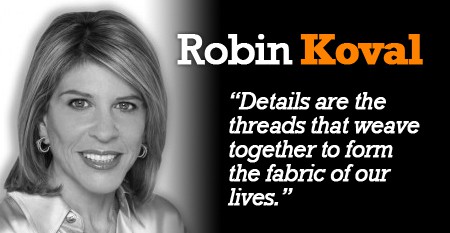I recently read a blog post on all the reasons not to hire “superstars” and I could not have disagreed more with what I read. The more I continued to read the drivel being espoused by this blogger the more I realized how prevalent his assertions and positions have become in today’s business world.
I have always subscribed to the philosophy that the quality of an organization’s talent will have a direct correlation to its success…
In other words, the better a company’s talent, the more successful the enterprise will be. I will discuss the benefits of hiring Tier-One talent in today’s blog post.
I cannot even begin to count the number of times I’ve witnessed companies pass over the right hire, or worse yet, not even look for the right hire because they let perceived financial constraints serve as a barrier precluding sound decisioning. I’ve observed HR managers filter better-qualified candidates because they were $1,000 outside the “top end” of the salary range. It is precisely this type of thinking that will keep a company from being competitive in the market. I so vehemently disagreed with the blog post I noted above that I decided to put forth a point-by-point rebuttal below for your consideration in the hope that you won’t fall prey to the flawed logic put forth by who, for the sake of this post shall remain a nameless blogger (I’m feeling kind today):
Point: “Superstars = Expensive. Seek a superstar, and expect to pay a bundle. Financially, and the other stuff: feelings of entitlement, benefits, environment necessities, yadda, yadda, yadda.”
Myatt’s Counterpoint: To put it bluntly, you get what you pay for…Real talent produces real results and is worth the investment. I’ll take a proven performer over a wannabe performer eleven times out of ten. Always hire up where possible…find the right talent and then do what it takes to secure the services of said talent, but resist the temptation to hire down based upon salary constraints.
Point: “You demotivate your current crop of talent. Jimmy’s been working his butt off for your company. Instead of promoting him, you bring in a superstar ”give him power, authority, extra resources, and benefits. What does that signal to Jimmy? Importantly, what does that signal to your other employees?”
Myatt’s Counterpoint: I have absolutely nothing against promoting from within; however, this assumes that the best talent has been organically incubated and is available. Whether the talent in question is internally or externally procured doesn’t matter…you hire the best talent for the position, period. If you have the ability to attract a bonafide “superstar” and you don’t do it, shame on you…Inserting tier-one talent into your business makes the statement that your company values talent and that in and of itself will raise the chinning bar for all employees. There is an old saying: “Talent Begets Talent,” and I wholeheartedly believe this to be true. Moreover, my definition of a superstar does not mean primadonna; rather, it means a team player. I expect our top talent to mentor our up-and-coming superstars.
Point: “The people became superstars elsewhere because they thrived in the right environment; they became superstars because they had fit the mold, the structure, and the culture of their organization. Since your company won’t have the same environment, superstars probably won’t achieve the same results in your company.”
Myatt’s Counterpoint: The issue described above has nothing to do with talent; rather, it describes a lack of discernment on the part of the leadership and/or management doing the hiring. A superstar, by definition, is a proven performer. It is up to the leadership and/or management doing the recruiting to determine if the company can create an environment that will allow the proven performer to flourish before hiring. If you properly support great talent, you’ll receive great rewards…Moreover, the point noted above would also hold true for a junior hire, as anyone, regardless of talent, will fail if not supported. That being said, superstars have a better chance of successfully navigating a challenging environment than someone less talented. The following quote is something taken from an article I authored some time ago on the topic of talent and I believe it accurately summarizes my feelings on the subject at hand: “Quality human capital is a catalytic asset that can be effectively leveraged across the enterprise to generate creativity, collaboration, momentum, velocity, client loyalty, dynamic corporate culture and virtually every other positive influencing force in the corporate universe. It is a quality talent that designs best practices, understands the value of innovation, overcomes obstacles, breaks down barriers, creates growth, and builds a lasting brand.”
The bottom line is that if you follow the advice of the unknown blogger quoted above with regard to talent, you will have a mediocre company doomed for failure. My advice…Hire the best talent you can find!







